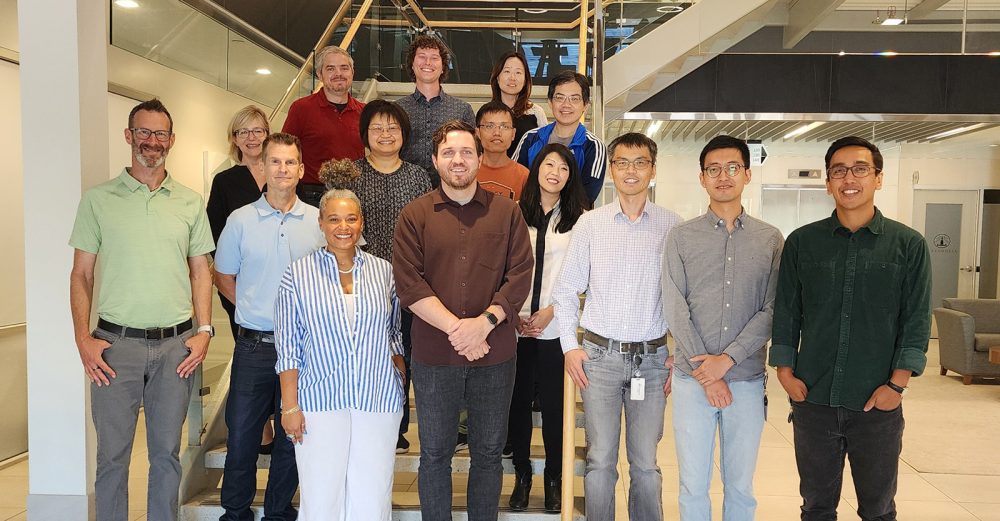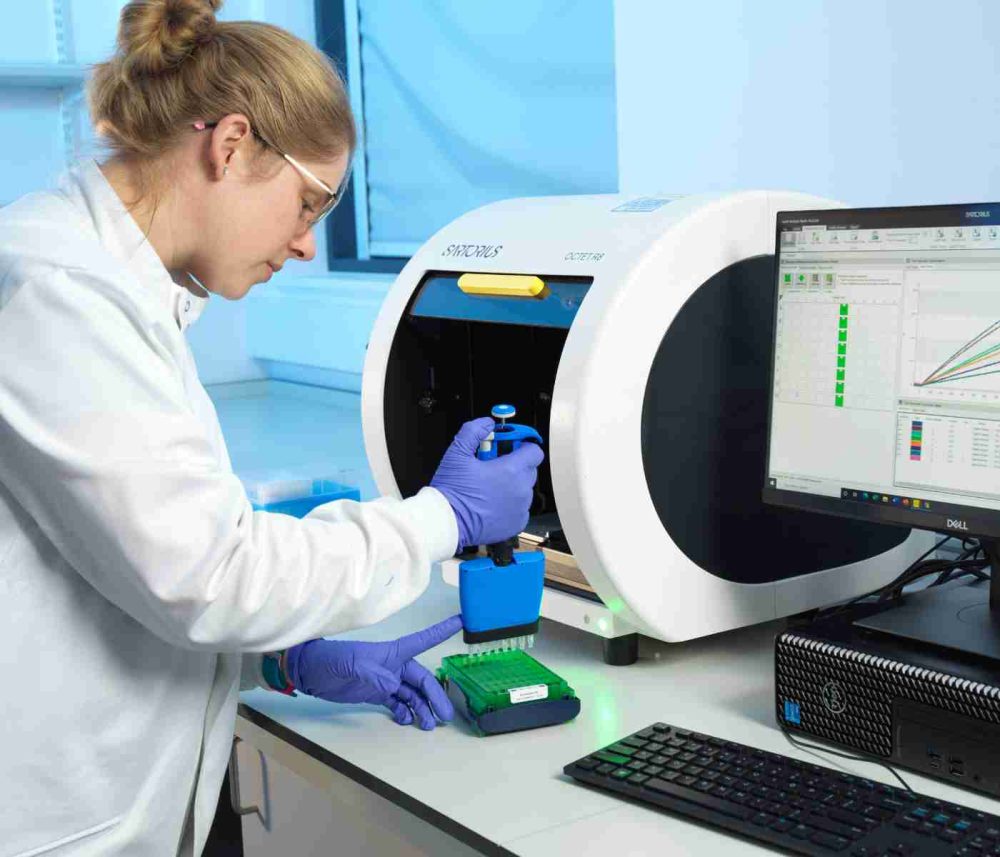Biotech deal paves way for new COVID-19 treatments and more
The Franklin’s first licensing agreement – with US-based IntegerBio – advances its pioneering nanobody technology with industry.
The days of lockdowns, televised news conferences and one-way systems in supermarkets may, for many of us, be a distant memory. But pandemics have been a real threat to us for decades – and it is likely to stay that way for many years to come.
That’s why teams of scientists around the world continue to study viruses with pandemic potential and to work on the development of potential new treatments. Researchers in the Nanobody Discovery Team at the Rosalind Franklin Institute are at the forefront of these efforts, working with a tiny type of antibody found in llamas that could underpin the next generation of therapeutics for coronaviruses like SARS-CoV-2 that caused COVID-19.
In lab studies to date, these nanobodies have shown great promise in neutralising several SARS-CoV-2 virus strains. Public Health England described the research as having “significant potential” for use in a pandemic. Importantly, llama-derived nanobodies can be relatively straightforward to produce, store and alter, as well as being versatile in how they can be administered to patients.
Licensing the technology
These attributes attracted the attention of US-based biotech company IntegerBio, which has licensed the nanobody technology with a view to progressing it towards new treatments against viral diseases including COVID-19. The agreement marks the first time the Franklin has engaged in partnership to commercialise one of its discoveries.
Professor Ray Owens, who leads the Nanobody Discovery Team at the Franklin, says: “We have been able to demonstrate scientifically that these nanobodies have a therapeutic effect in animal models of disease. But to take that further and potentially reach the clinic, the technology needs to get into the hands of professional drug development organisations. That’s why partnering is so important for academic research, and why it’s so important for an organisation like the Franklin to be industry-facing. While it’s still early days and there are many more phases to work through before treatments can reach patients, it’s hugely encouraging that IntegerBio has seen the potential in this technology.”

Backed by venture capital firm Samsara BioCapital and based in the biotech hub of Gaithersburg, Maryland, IntegerBio is developing a portfolio of novel therapeutics. Atul Saran, Chief Executive Officer at IntegerBio, says: “We are operating in the Immunovirology space, harnessing the immune system to combat viruses that cause disease. Through our collaboration with the Franklin, we hope to be able to develop new drugs for treatment or prophylaxis that will reduce the severity of viral disease. Ideally, those will be variant-agnostic so that a therapy that is effective in 2024 will also work in the future, even as targeted viruses continue to mutate.”

A versatile platform
The nanobody platform itself, meanwhile, is viewed as a broad technology that could be applied to a host of other viruses. That versatility has been a big attraction for IntegerBio, which hopes to develop what it calls “multiviral” therapeutics that can address multiple viruses that cause serious viral diseases. IntegerBio’s ongoing collaboration with the Franklin currently consists of two simultaneous programmes focusing on different coronavirus subunits.
“The Franklin has been at the forefront of scientific research and it has been an excellent experience to be able to collaborate with the team,” adds Atul. “We hope that our capabilities, paired with those at the Franklin, in time, will benefit patients around the world.”
